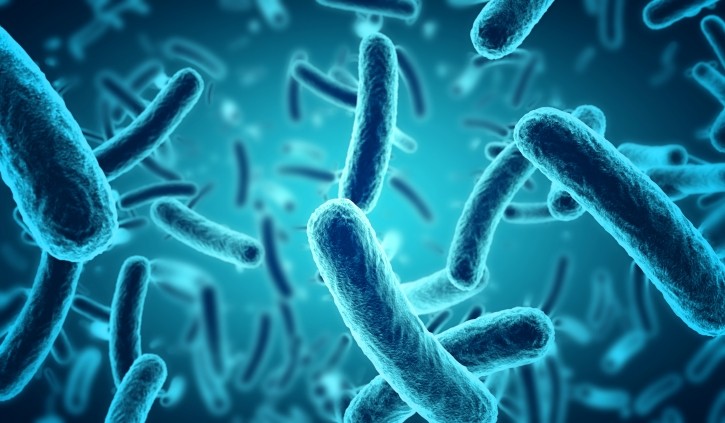Study: Probiotics plus l-glutamine and biotin improve quality of life for ulcerative colitis patients

This study, involving 93 patients, explored the effects of a standardised nutritional supplement containing five bacterial strains of at least five billion bacteria (Bifidobacterium infantis, Bifidobacterium animalis, Lactobacillus bulgaricus, Lactobacillus helveticus, and Enterococcus faecium) with L-glutamine and biotin.
The supplement was administrated over the course of three consecutive treatment sessions, separated by 12-week breaks.
The researchers from Romania found this therapy had a positive impact on the weight status and body composition indicators.
They assert that this is one of the few studies to date that has looked at the relationship between body composition and dietary supplementation with probiotics in UC patients.
"Our results indicate a significant correlation between the consumption of such dietary supplements and the positive evolution of body composition parameters and improvements in the subjects’ quality of life," they conclude.
Background
The prevalence of inflammatory bowel disease (IBD), including UC, is rising and has emerged as a significant public health concern.
Ulcerative colitis (UC) is an inflammatory condition that affects the colonic mucosa or the rectum. It is a chronic, diffuse, and incurable disease. It is the most prevalent type of inflammatory bowel disease (IBD).
Typically, studies have used bioelectrical impedance analysis (BIA) to examine the nutrition status (NS) of IBD patients, for assessing body composition along with fat mass (FM) and fat-free mass (FFM) measurements. The phase angle (PhA) determined from BIA is a variable that can be calculated from the connection between resistance (R) and reactance (Xc) (R/Xc 180◦ ) and appears to be a new and promising indication of nutritional status.
The ratio of extracellular water to total body water (ECW/TBW) is a reliable marker of edema in patients and is highly correlated with severity of nutritional condition.
Due to the high anti-inflammatory and immunomodulatory potential, probiotics, particularly those belonging to the Lactobacillus/Bifidobacterium sp., have been shown to be helpful in the treatment of UC.
L-glutamine is a “conditionally essential” amino acid that prevents damage to the gastrointestinal tract and restores lumen barrier failure. As a result, supplementing probiotics with L-glutamine lowers clinical and endoscopic scores in UC patients while promoting gastrointestinal mucosal development and limiting permeability to toxins and pathogens, atrophy mucosa, and villi.
UC has also been linked to biotin deficiency. The b vitamin's function is as a covalently bound coenzyme for carboxylases used in leucine catabolism, gluconeogenesis, branched-chain amino acid and odd-chain fatty acid breakdown, and fatty acid synthesis and oxidation.
New research on biotin’s function in the immune system showed that it is associated with inflammation and that a biotin shortage increases the production of pro-inflammatory cytokines.
Moreover, recent studies indicate that a biotin deficit leads to intestinal dysbiosis, one of the primary causes of IBD.
By selecting a dietary supplement in which probiotics are associated with glutamine and biotin, the current study aimed to assess the clinical effects of this particular supplement on body composition and quality of life in UC patients. This is a novel approach in the field of therapies in UC, according to the authors.
The study
Ninety-three patients over 18 years of age with a confirmed diagnosis of UC, for whom body composition could be accurately determined, were included in this observational follow-up randomised study.
These patients were split into two groups: UC-P (44 patients with dietary counselling and supplement with probiotics) and UC-NP (49 patients with dietary counselling, without supplement).
Body composition was assessed using the multifrequency bioelectrical impedance device, and the quality of life related to UC was evaluated by applying the short inflammatory bowel disease questionnaire (SIBDQ).
The resulting data indicated that the average value of muscular mass (MM) and sarcopenic index (SMI) significantly increased (p = 0.043, respectively, p = 0.001) and a large fraction (p = 0.001) of patients had their SMI levels normalised in the UC-P group compared with UC-NP group.
The extracellular water to total body water ratio (ECW/TBW) also had significantly different mean values (p = 0.022), favouring the UC-P group. By testing the differences between the average values of body composition parameters before and after treatment, we obtained significant results in body mass index (BMI) (p = 0.046), fat free mass (FFM) (p < 0.001), and ECW/TBW ratio (p = 0.048).
The SIBDQ total score increased significantly (p < 0.001) in the UC-P group and was more strongly associated with changes in body parameters.
The researchers conclude that supplementation with probiotics associated with L-glutamine and biotin can improve body composition parameters, which in turn implies an increase in the overall quality of life of patients with UC.
associations between changes in physical parameters and the quality-of-life score determined by the SIBDQs were tested, the results showed stronger relationships between the variables in the UC-P group than in the UC-NP group, which led to the conclusion that probiotics came with significant benefits in terms of maintaining body composition.
The researchers note that this study does have certain drawbacks - there were not many patients included and there are other significant variables that could affect body composition, such as illness activity and duration or glucocorticoid exposure, which have not been explored. Also, adherence to therapy was not assessed using specific indicators and that CRP was the only pro-inflammatory biomarker considered.
They suggest future research is needed to reduce the limitations, as well as to validate the results of this study.
Source: Nutrients
https://doi.org/10.3390/nu15245049 (registering DOI)
"Clinical Implications of Dietary Probiotic Supplement (Associated with L-Glutamine and Biotin) in Ulcerative Colitis Patients’ Body Composition and Quality of Life"
Authors: Pavel, F.M.; Bungau, S.G.; Tit, D.M.; Ghitea, T.C.; Marin, R.C.; Radu, A.-F.; Moleriu, R.D.; Ilias, T.; Bustea, C.; Vesa, C.M.












